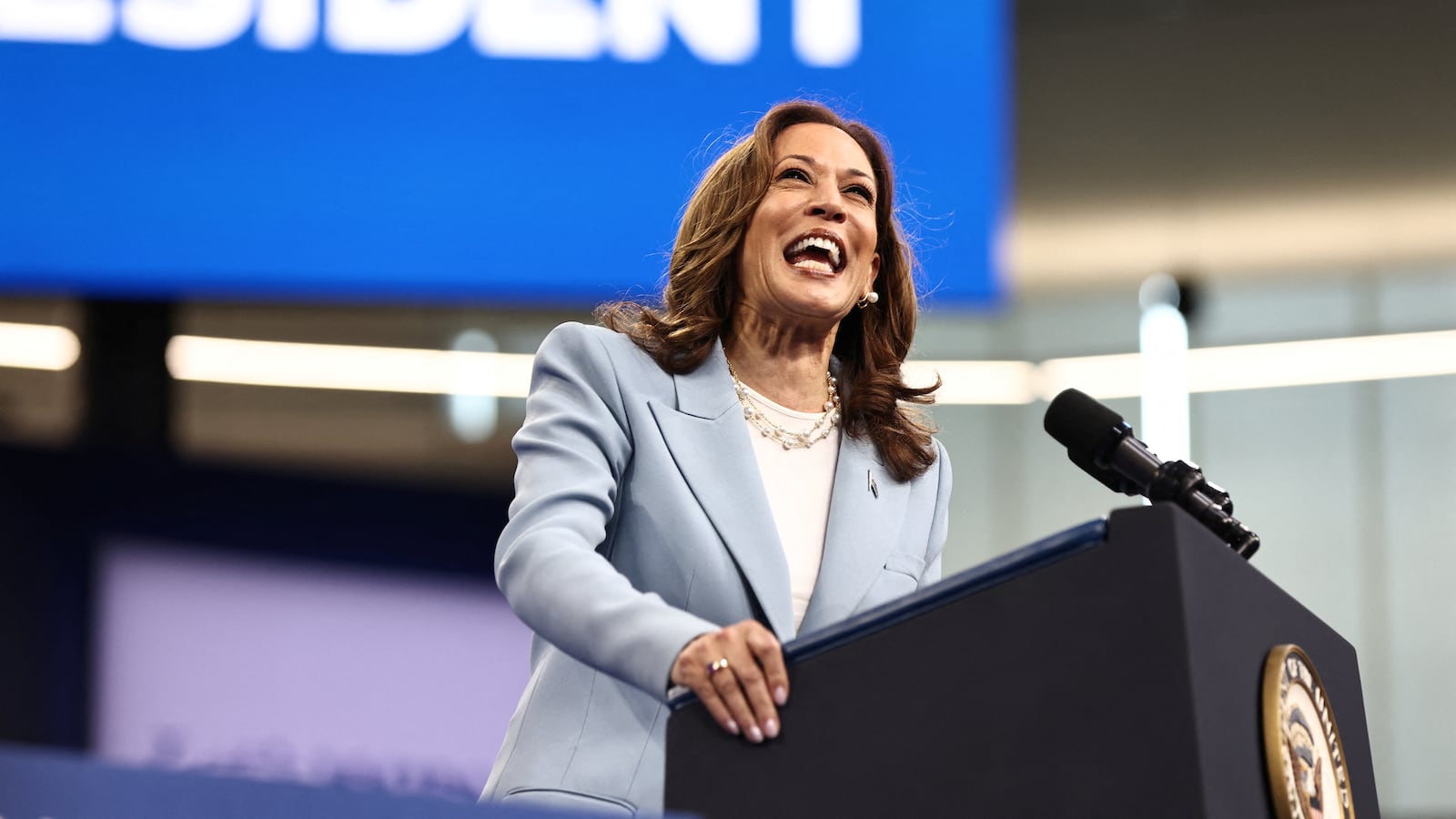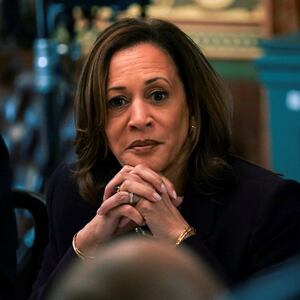Larry Wilmore is an Emmy-award winning writer, actor, producer and showrunner. He hosts the podcast Larry Wilmore: Black on the Air.
Hearing convicted-felon-slash-presidential-hopeful Donald Trump express his confusion over Kamala Harris’ decision to “turn” Black, brought me back to that time a few years ago when I made the same choice. It was a blustery October afternoon, overcast, with hints of an oncoming storm. But the real turbulence that day was in my parents’ living room, when I shared with them my plan to crystalize my identity. They were angry and confused.
“Identity? What the hell do you need an identity for?” my Dad asked. “Everybody knows what you are!” He seemed to get more agitated the more he considered it. You see, my father is a very fair-skinned Black man. In fact, his mother and grandmother could have easily passed for white in their day. But that was impossible. There was something called the “one drop rule,” which meant that if you had any trace of “negro” blood in you, you couldn’t be white. Black blood was a contaminant.
It was white people who were in charge of that decision. And this was not just a cultural peccadillo but was codified into law, particularly around interracial marriage—which was only recently overturned in the 1967 Supreme Court decision, Loving v. Virginia.
Not only couldn’t those older generations choose how to identify in white society, they also had to endure all the various names we called ourselves. We came into the world back then as Colored People, then at some point became Negroes. For a short time we were called Afro-American (named after a hairstyle), which led to Americans of African Descent (which made even less sense). Then just when we thought we had all agreed on Black, we switched it out for People of Color.
No wonder my Dad was struggling; that was a lot to keep up with! And now I wanted to go back to Black?
Sorry Dad, but it’s my choice.
And that’s the real issue here, choice. Kamala Harris is of mixed heritage, Black and Indian American, but primarily has chosen to identify as Black. (To be clear, this does not mean she has ever refuted or denied her Indian heritage.) Now, of course, I never had that conversation with my parents. But Donald Trump’s obliqueness to the Black experience in America—“I don’t know what she is!”—is so exhausting to watch that I almost feel like I had. He’s always so confused.
Some on the left have boasted of how Harris was born in Oakland, went to an HBCU, and joined a Black sorority as proof of her identity as if there’s a checklist of cultural levels you have to unlock to get to authenticity: Congrats Kamala, your Blackness has reached Mosaic status!
No. Kamala Harris is not Black because of what she’s done, where she was born, or how she speaks. She’s Black because that's how she chooses to identify. And if this is confusing to the worst white man in the world, so be it. It’s her choice. That’s a phrase worth getting used to.






